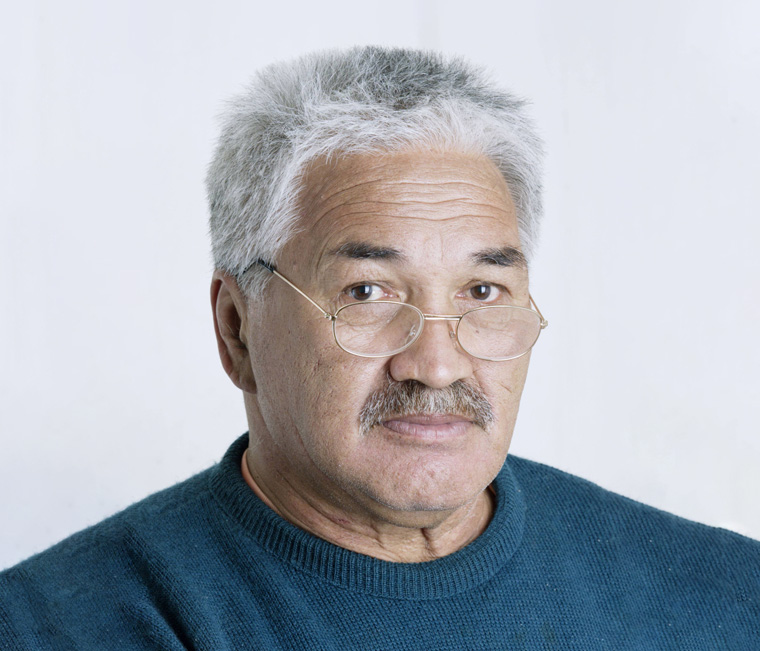Te Ringa Mangu (Dun) Mihaka
Te Ringa Mangu Mihaka, a Māori speaker from rural Pukehamua in the far north, stood alone in courts in the late 1970s asserting his right to speak te reo Māori in judicial proceedings. The rejection of his bid led to the WAI11 Waitangi Tribunal findings and legislation granting that right.

Te Ringa Mangu Mihaka came to prominence in the 1970s and 1980s as a staunch and idiosyncratic defender of Māori rights and as a challenger of Māori and Pākehā establishments and their practices. Charged with an offence, he asserted his right to use his mother tongue in the District Court.
Turned down by the judge, he appealed to the High Court and then to the Court of Appeal, representing himself, basing his claim on the Treaty of Waitangi. Ruling in the case known as Mihaka v Police [1980], the Court of Appeal said: ‘The appellant has argued with dignity and restraint that his rights as a Māori New Zealander entitle him to have the hearing conducted in Māori. The use of the Māori language in New Zealand is a matter of public importance but it does not follow that it raises a question of law in the circumstances of the present case. The Treaty of Waitangi to which reference was made does not deal with the legal point now in issue’.
In responding to the Māori language claim, the Waitangi Tribunal therefore had before it a clear statement that the Treaty was not relevant to legal rights in court. Mihaka told the Tribunal that he sought to speak Māori as a right and not because of any inadequacy in his command of English, in which he was fluent.
Mihaka saw his case as ‘the straw that broke the camel's back’ in returning the Māori language to its rightful status.
In 1989 he published ‘Ki te Whei-Ao …’, ‘Ki te Ao Mārama…’, a book describing and reflecting on his personal experiences of tangihanga. He challenged some Māori practices and coined new terms such as ‘tama-ngākau-mārie-tanga’ for Christian observances.
Mihaka stood largely alone in his challenge to the justice system and to its rejection of the Treaty and indigenous language rights. Without his determined stand in the face of state monolingualism, the history of the revitalisation of te reo Māori would have been very different. His contribution is recorded in the lawbooks of the nation and will be recalled whenever the history of the Māori language is told.